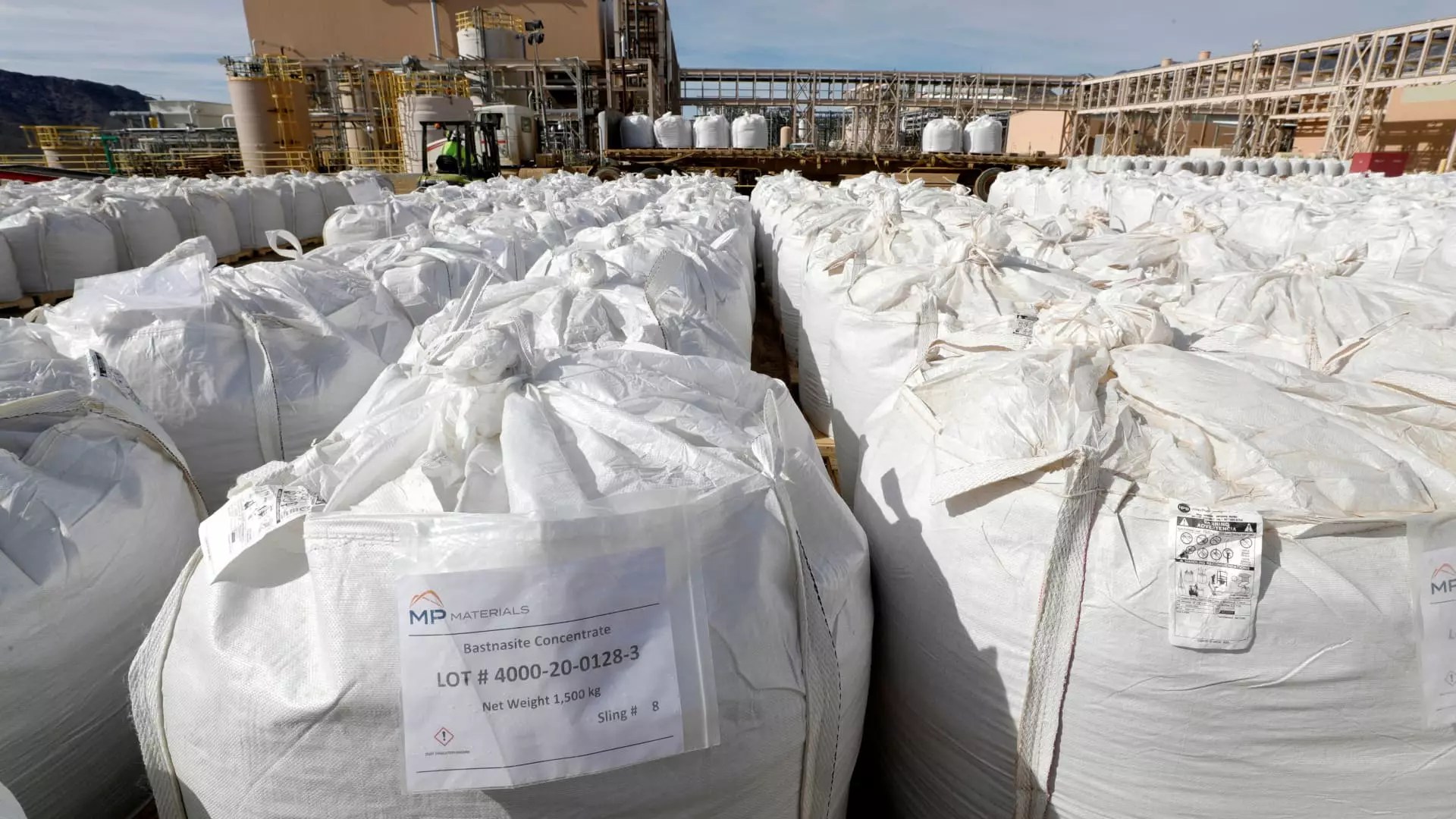In 2025, the intersection of government policy and corporate strategy has become painfully evident, especially as sectors like rare earth mining experience dramatic surges. MP Materials, a key player in this niche, skyrocketed by over 47%, driven by a sharply increased defense commitment—$400 million in preferred stock from the U.S. Department of Defense. This isn’t mere luck but a calculated move reflecting the heavy reliance of modern strategic industries on government backing. Such direct financial intertwinings reveal an uncomfortable truth: in this era, corporate vitality often hinges on state-sponsored interests rather than organic growth. The company’s CEO, James Litinsky, emphasizes control and independence, but the reality suggests a complex dance where government influence becomes a catalyst rather than just a background actor. This shift underscores a disturbing trend—public companies increasingly depend on the security of political alliances, risking their long-term independence for shorter-term gains.
Corporate Resilience in a Turbulent Economy: Winners and Losers
Airlines like Delta are demonstrating surprising resilience, with their shares climbing 11% after reaffirming optimistic profit forecasts through 2025. Their ability to outperform analyst expectations signals a broader shift in the transportation sector’s undercurrents. The recovery is not solely driven by market factors but by strategic repositioning, operational efficiencies, and perhaps a touch of investor optimism about inflation-weary consumers willing to splurge on travel again. Yet, beneath this surface optimism, the sector remains vulnerable to unforeseen disruptions—be it geopolitical upheavals or fuel price volatility—a fragile fragility masked by short-term highs.
Fast-food giant McDonald’s also finds its footing, buoyed by an upgrade from Goldman Sachs, which recognizes its superior positioning in capturing cost-conscious consumers. The move isn’t coincidental; it highlights a marketplace increasingly delineating winners based on agility and brand strength during economic uncertainty. Meanwhile, Hertz’s meme-stock rally reminds us that speculative fervor still commands significant influence—up 118% year-to-date—embodying a market where narrative and momentum often overshadow fundamentals.
Contrasting these gains are more alarming signals elsewhere. The Brazil-U.S. trade tensions are a stark reminder that political brinkmanship still influences markets. President Trump’s announcement of a 50% tariff redefines the macro environment, prompting retaliatory measures from Brazil and impacting companies like Embraer with a 6% decline. Embraer’s struggles exemplify how geopolitical decisions can swiftly derail even the most promising sectors—an unstable foundation for investors, yet one that often goes unheeded amidst the euphoria of short-term gains.
The Tech Tensions and Corporate Shifts: Risky Plays and Hidden Instabilities
In the technology sector, Mobileye’s stock price dipped following a secondary offering priced below recent levels. While some interpret this as a negative signal, it reveals underlying corporate strategies to raise capital amid competitive pressures rather than any fundamental flaw. Contrarily, AMD’s recent upgrade to a buy reflects a broader confidence in artificial intelligence innovations and chip demand, illustrating the tech sector’s resilience amid chaos.
Meanwhile, the building materials sector suggests a more cautious optimism, with Trex improving after an analyst upgrade, reflecting renewed demand in home improvement markets. These categories portray a landscape where industry-specific cycles prevail over macroeconomic turbulence, but it would be naïve to ignore the underlying fragility—such upward movements are often susceptible to abrupt reversals once investor sentiment shifts.
In the realm of high-stakes mergers and acquisitions, PTC’s declining shares after a failed rally—yet heightened merger speculation—highlight the volatile nature of tech consolidation. The fact that Autodesk is rumored to consider acquiring PTC suggests a consolidation trend, but also underscores the sector’s inherent instability: megadeals often promise growth but come with immense integration risks that could undermine shareholder value.


Leave a Reply